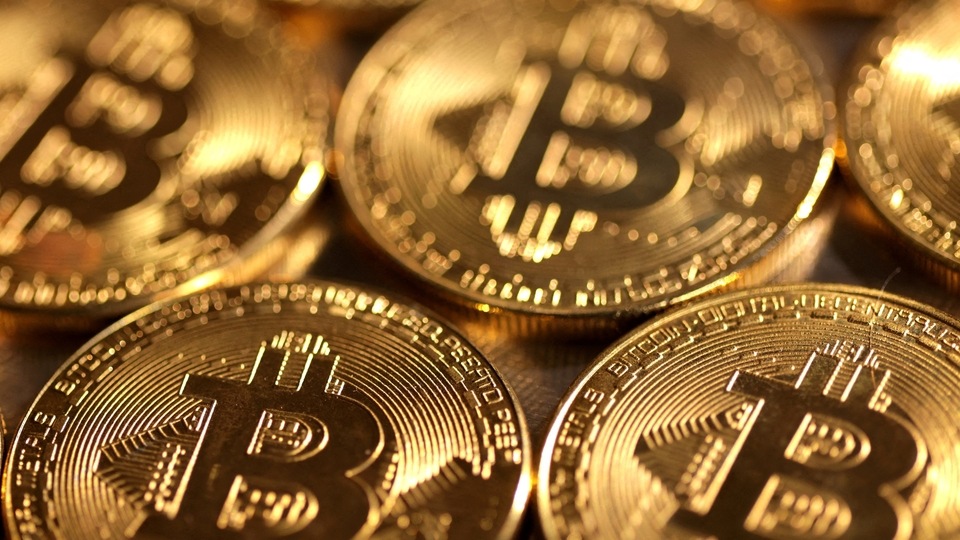Don’t Let the Crypto Winter Go to Waste
Regulators shouldn’t miss this once-in-a-lifetime opportunity to head off an obvious threat to the financial system.

The cryptocurrency market has granted US policy makers the opportunity of a lifetime. Less than a year ago, it was on the verge of becoming a systemic threat, gathering disciples, leverage and political clout faster than regulators could get a grip. Then, the danger miraculously dissipated: The market imploded before reaching critical mass, entering the “crypto winter” that persists to this day.
This reprieve might not last long. Policy makers should act now to impose some much-needed rules on this market.
The problem areas are clear. No. 1 is stablecoins, or digital tokens that purport to be worth a dollar and are used by speculators to gain leverage or to park funds between bets. At their peak, such coins had attracted more than $160 billion, which their issuers invested in assets ranging from corporate debt to Bitcoin to nothing at all. The danger is that a sudden loss of confidence could trigger an exodus, as happened with the Terra stablecoin in May. The more regular assets the issuers hold, the greater the chances of broader disruption — for example, in markets that real-world companies rely on to make payroll and raise working capital.
Another threat arises if commercial banks get exposed to crypto, either directly or via lending to companies and hedge funds. If, for example, major banks had been among the creditors of now-bankrupt entities Celsius or Three Arrows Capital, which at their peak had tens of billions of dollars in combined liabilities, the crypto meltdown could've done much broader damage. Luckily, regulators appear to have averted such an outcome and remain vigilant, though they've yet to adopt any formal rules.
Beyond that, myriad digital tokens and trading venues — including big exchanges operated by Coinbase and Crypto.com — for the most part don't face the same standards for consumer protection, disclosure, governance, safety and soundness that traditional assets and financial intermediaries do. The market is thus rife with hacks, manipulation, self-dealing and outright fraud, as regulators such as the Securities and Exchange Commission and the Commodity Futures Trading Commission struggle to work out how to respond and who should be in charge of what.
Ideally, Congress would impose some order. There's plenty of proposed legislation, some of it good. One bipartisan bill would (sensibly) require stablecoins to be backed with regularly disclosed high-quality assets and establish oversight of crypto tokens and exchanges. That said, it would also complicate things by creating a new category of “ancillary assets” for certain digital tokens, and includes dubious measures such as tax breaks for the “miners” who process blockchain transactions. Also, with midterm elections looming, legislators are unlikely to move forward anytime soon.
Officials needn't wait for Congress. Bank regulators, for their part, have the power to create a limited charter for stablecoin issuers: Those that met the necessary standards, including for assets and governance, could receive privileges such as access to accounts at the Federal Reserve; others would face strict scrutiny and possible sanctions. Authorities can also adopt stringent capital requirements, ensuring that any exposures to crypto are financed with equity that banks can afford to lose.
As for tokens and exchanges, the SEC and CFTC should cooperate. It hardly matters whether a thing is called a security or a commodity, so long as some semblance of transparency and accountability is established. To that end, former CFTC chair Timothy Massad and Harvard Law School professor Howell Jackson have a promising proposal: the agencies should set up an industry-funded organization (similar to the Financial Industry Regulatory Authority) that would set reasonable standards for all relevant crypto instruments and institutions. As with stablecoin issuers, entities that failed to comply would risk legal consequences.
The technology underlying crypto may yet yield benefits, but the speculative frenzy surrounding it still has the potential to do a lot of damage. Rarely has history granted authorities a second chance to head off such an obvious threat to the financial system. Don't let it go to waste.
Catch all the Latest Tech News, Mobile News, Laptop News, Gaming news, Wearables News , How To News, also keep up with us on Whatsapp channel,Twitter, Facebook, Google News, and Instagram. For our latest videos, subscribe to our YouTube channel.


























